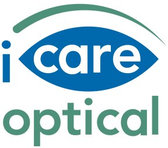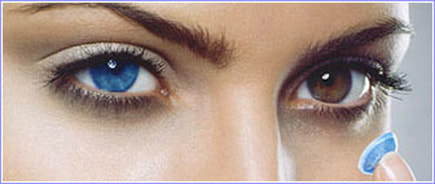Contact lenses
At I Care Optical, our optometrists specialize in comprehensive contact lens examinations with an emphasis on fitting problems and hard-to-fit contact lens wearers. Your eye exam and personal consultation will help determine which prescription lens is right for your vision.
We take many factors into consideration in evaluating which contact lenses are best for your eyes. Some things our eye doctors will evaluate and discuss with you are
- Lifestyle and how active you are
- Your general health and any health problems
- Eye conditions such as astigmatism
- The curvature of your eyes
- Allergies and dry eye problems
- Current and previous corrective eye wear
We dispense the best hard and soft prescription contact lens brands including
- Acuvue Oasys and Acuvue Oasys for Astigmatism
- Air Optix Night and Day
- Bausch & Lomb
- Biofinity and Biofinity Toric
- Focus
- Proclear and Proclear Multifocals
Hard Contact Lenses
Hard lenses were once made from hard plastics such as Plexiglas or Lucite. These materials have been replaced with a porous material that lets oxygen flow to the eyes. Known as rigid gas-permeable, gas-permeable, RGP or GP lenses, the construction is highly durable while still promoting eye health.
Hard lenses were once made from hard plastics such as Plexiglas or Lucite. These materials have been replaced with a porous material that lets oxygen flow to the eyes. Known as rigid gas-permeable, gas-permeable, RGP or GP lenses, the construction is highly durable while still promoting eye health.
Unlike soft lenses, RGP lenses will not tear and because of their solid structure, cleaning is easier. The rigid but porous material allows for a more successful fitting and decrease in eye irritation.
Gas-permeable lenses correct farsightedness, nearsightedness and astigmatism. They are also recommended for the age-related vision condition known as presbyopia. For some patients, hard lenses are more effective than soft lenses at correcting all such vision problems.
GP lenses should be replaced after approximately one year.
Soft Contact Lenses
Soft contact lenses' gel-like material results in a lens that is thin, flexible and more adhering to the eye. If you have sensitive eyes and have had problems with lens fittings for hard lenses due to comfort issues, soft lenses may be the answer.
Soft contact lenses' gel-like material results in a lens that is thin, flexible and more adhering to the eye. If you have sensitive eyes and have had problems with lens fittings for hard lenses due to comfort issues, soft lenses may be the answer.
Soft lenses mold to the eye so that slippage is rarely a problem. They are an especially good choice for younger patients and those with an active lifestyle. As with hard lenses, soft lenses can correct farsightedness, nearsightedness and astigmatism.
Soft contact lenses are absorbent and, even with proper cleaning, are prone to deposit build-up and contamination. For this reason, they come in three variants for maintenance and cost options.
Daily Wear Lens
Daily wear soft contact lenses, also referred to as monthly contact lenses, are meant to be worn during the day and removed at night. They require daily cleaning and should be discarded and replaced monthly.
Daily wear soft contact lenses, also referred to as monthly contact lenses, are meant to be worn during the day and removed at night. They require daily cleaning and should be discarded and replaced monthly.
Single Use Lens
Single use soft contacts, also known as disposable contact lenses or one day contact lenses, are meant to be discarded and replaced daily. Not only are disposable lenses more convenient, they help prevent contact lens related eye infections. While their overall cost is more, they are a good choice if you want a low maintenance lens, have allergenic reactions to contact lens solution or are more susceptible to eye infections.
Single use soft contacts, also known as disposable contact lenses or one day contact lenses, are meant to be discarded and replaced daily. Not only are disposable lenses more convenient, they help prevent contact lens related eye infections. While their overall cost is more, they are a good choice if you want a low maintenance lens, have allergenic reactions to contact lens solution or are more susceptible to eye infections.
Extended Wear Lens
Extended wear soft contact lenses, also referred to as continuous wear contact lenses or 30 day contact lenses, are designed to be worn continuously both day and night for several weeks. These lenses allow you to maintain 20/20 vision 24/7. Because extended wear increases the risk of infection, we will evaluate whether you are a good candidate for this lens type and instruct you on precautions and proper eye care.
Extended wear soft contact lenses, also referred to as continuous wear contact lenses or 30 day contact lenses, are designed to be worn continuously both day and night for several weeks. These lenses allow you to maintain 20/20 vision 24/7. Because extended wear increases the risk of infection, we will evaluate whether you are a good candidate for this lens type and instruct you on precautions and proper eye care.
Bifocal and Multifocal Contact Lenses
If you wear glasses to correct both far and near vision problems but have always wanted to wear contact lenses, the new and improved bifocal and multifocal lenses can make that possible. These lenses come in both soft and hard lens materials and can be worn daily or just on occasion instead of glasses.
If you wear glasses to correct both far and near vision problems but have always wanted to wear contact lenses, the new and improved bifocal and multifocal lenses can make that possible. These lenses come in both soft and hard lens materials and can be worn daily or just on occasion instead of glasses.
At I Care Optical, fitting you with the best prescription lenses just for "you" is our mission. We also offer a guaranteed fit for all contact lenses. Call us to schedule a comprehensive eye exam, consultation and lens fitting today.


